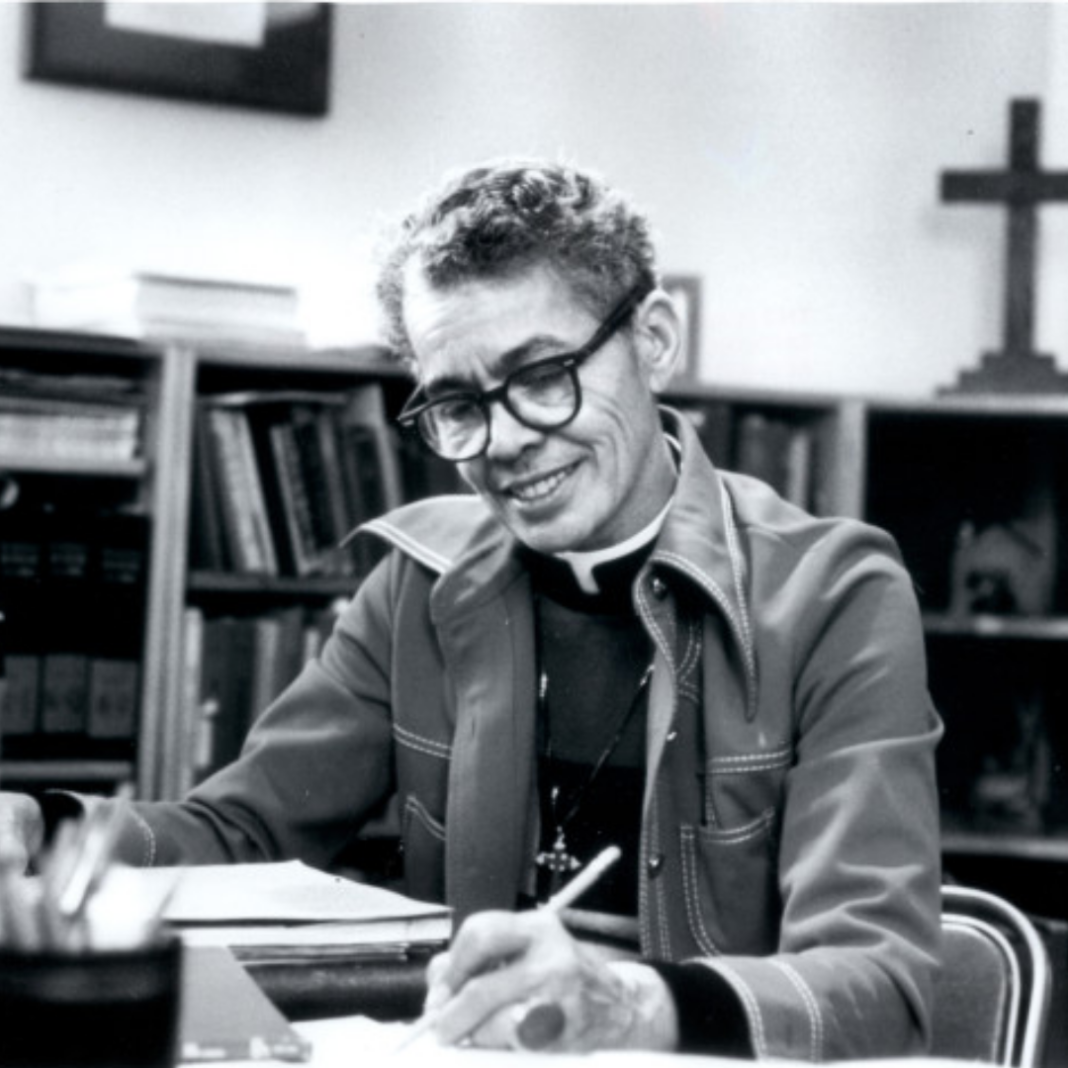Pauli Murray was a civil rights activist, lawyer, and women’s rights activist. She was born on November 20, 1910, in Baltimore, Maryland, to Agnes Fitzgerald and William Murray, the fourth of their six children.
Her mother, Agnes Fitzgerald Murray died in 1914 from a brain haemorrhage. William Murray, a Howard University graduate, worked in the Baltimore public school system as a teacher and then as a principal. Her father died of typhoid fever in 1923.
Pauli Murray was born Pauline Fitzgerald Dame and grew up in Durham, North Carolina. She pursued gender-affirming medical treatments, including hormone therapy, which she was denied.
She became involved in the civil rights movement during World War Two. Murray worked as a member of the Fellowship of Reconciliation (FOR) to eliminate segregation on public transportation. She was arrested and imprisoned in Richmond, Virginia in March 1940 for refusing to seat in the back of a bus.
Murray entered Howard University’s law school in 1941, intending to practise civil rights law. The next year, she co-founded the Congress of Racial Equality with George Houser, James Farmer, and Bayard Rustin (CORE).
Article Content
Books
Pauli Murray’s writing continued to have an impact on the civil rights struggle. Murray produced two key writings on civil rights in 1943: “Negroes Are Fed Up” in Common Sense and a socialist newspaper story about the Harlem race riot in New York Call.
In the same year, she wrote her most renowned poetry, Dark Testament. The poem was first published by Silvermine Press in 1970 as part of a larger collection of her work, Dark Testament and Other Poems, which was republished by W.W. Norton in 2018.
In the early 1950s, Murray, like many Black citizens involved in the civil rights movement, was suppressed by McCarthyism. Thurgood Marshall described her book States’ Laws on Race and Color as the “Bible” for civil rights litigators. She lost a US State Department post at Cornell University because her references were considered “too radical”.
Murray also published Proud Shoes: The Story of an American Family in 1956, a memoir of their grandparents’ struggles with white supremacy and anti-Blackness, as well as a moving portrait of their city of Durham. Murray was offered a position in the litigation department at Paul, Weiss, Rifkin, Wharton, and Garrison shortly after the book was published.
Murray went to Ghana in 1960 to teach law and learn about their African cultural traditions. During her time in Ghana, she co-authored a book with Leslie Rubin called The Constitution and Government of Ghana. Murray returned to Yale Law School, where he pursued a JSD degree and mentored several young women activists, including Marian Wright Edelman, Eleanor Holmes Norton, and Patricia Roberts Harris, all of whom went on to become leaders in their own right.
Death
Pauli Murray died of cancer on July 1, 1985, in Pittsburgh.
Her book, Song in a Weary Throat: An American Pilgrimage, was released after she died in 1987.
Her autobiography, Pauli Murray: The Autobiography of a Black Activist, Feminist, Lawyer, Priest, and Poet was republished in 1987 as Pauli Murray: The Autobiography of a Black Activist, Feminist, Lawyer, Priest, and Poet, and also republished in 2018 as Pauli Murray: The Autobiography of a Black Activist, Feminist, Lawyer, Priest, and Poet with a new introduction by Patricia Bell-Scott.
Read Also: Biography of Alberta Christine Williams King, Mother of Martin Luther King Jr.


